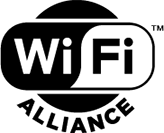Wi-Fi Alliance® applauds Spectrum Frontiers vote to provide additional unlicensed spectrum
Austin, Texas, July 14, 2016 – Today, the United States Federal Communication Commission adopted the Spectrum Frontiers proposal to identify and open substantial amounts of high-band spectrum (known as millimeter bands) for flexible use wireless broadband. The new rules would open nearly 11 GHz of spectrum, 7 GHz of which would be dedicated to unlicensed usage.


